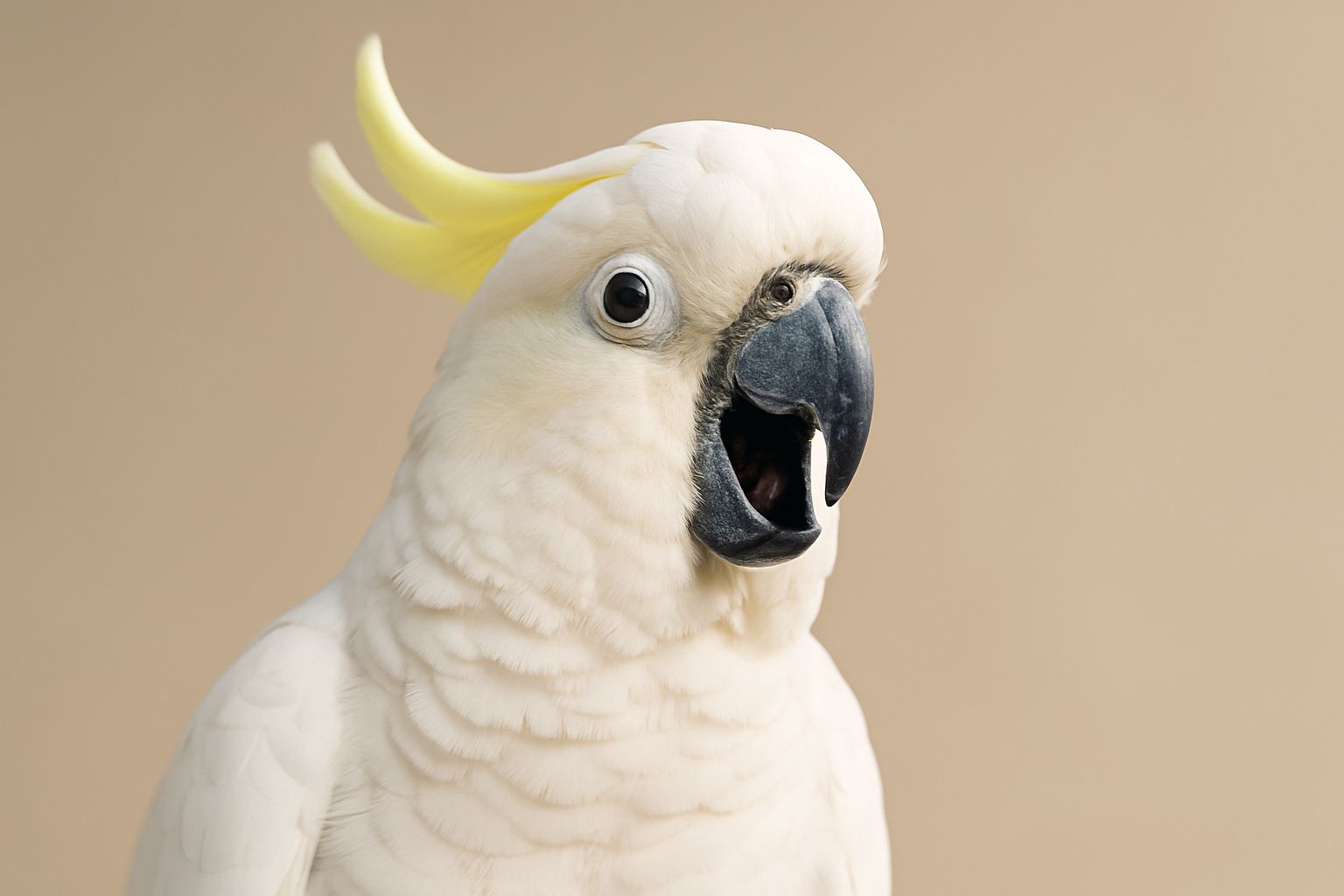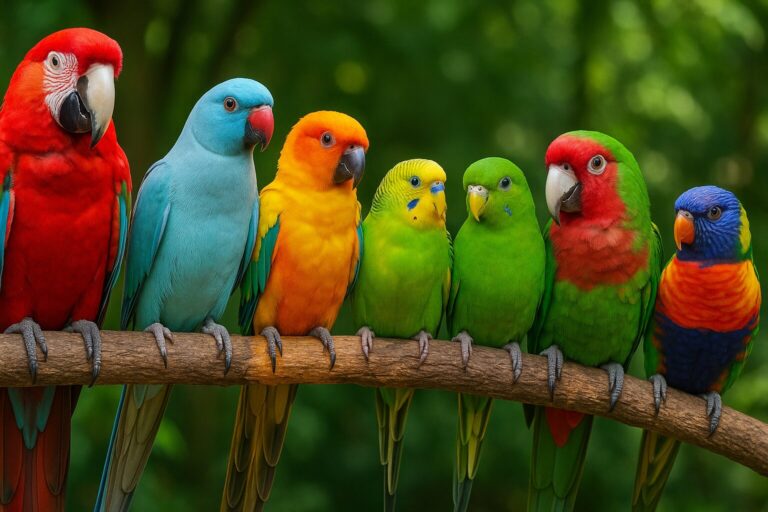
Cockatoos are some of the most charismatic parrots in the bird world. Their expressive crests, playful antics, and affectionate personalities make them stand out. But one question comes up constantly: can a cockatoo talk?
Yes, but not like a parrot stereotype
The short answer: yes, cockatoos can talk. But they’re not the all-stars of speech that African greys or Amazon parrots are. Cockatoos can mimic human words and phrases, but their vocabulary tends to be smaller, and their clarity can vary from surprisingly crisp to adorably garbled.
Where cockatoos excel is in voice mimicry and emotional tone. Owners often report their cockatoos picking up not just words, but also the cadence, pitch, and rhythm of a household voice. They may say “hello” in a way that sounds eerily like the family member who uses it most often.
It’s also worth noting that cockatoos may lean more toward expression than accuracy. You’ll hear words, but often accompanied by body language: a head bob, a crest raise, a mischievous glance. For these birds, speech is not just sound—it’s performance.
Another point: cockatoos rarely talk on command like some parrots do. They prefer to drop their phrases randomly, often at the funniest possible moments. That unpredictability makes them charming companions but also reminds you that they’re speaking because they want to, not because you do.
Personality drives talking ability
Unlike some parrots, cockatoos don’t all develop speech automatically. It often depends on the bird’s personality and how much social interaction it gets. A cockatoo that spends lots of time with humans, hears repeated phrases, and receives positive reinforcement is far more likely to build a recognizable vocabulary.
And here’s the kicker: cockatoos are attention seekers. They’re highly social and crave engagement. Talking — or mimicking sounds — is just another way they get a reaction. Some will chatter endlessly because they’ve figured out that every silly word earns laughter, eye contact, or treats.
That means your cockatoo’s “speech ability” isn’t about biology alone. It’s about context. Birds raised in quiet homes, or with limited stimulation, may never develop much of a vocabulary. Birds in lively households, where people constantly talk to them, often surprise owners with phrases they didn’t even know the bird had overheard.
Patience also plays a role. Some cockatoos don’t start mimicking until they’re several years old. If you’ve had your bird for a while and think “it’ll never talk,” don’t be so sure — one day it might just pipe up with a perfectly timed phrase that proves otherwise.
What they mimic besides words
Talking isn’t the only sound trick cockatoos pull off. They’re notorious for copying household noises: door creaks, phone beeps, laughter, sneezes, even the family dog barking. Sometimes, they’ll string these noises together in absurd mashups — a sneeze that turns into a laugh, followed by a door creak. It’s part of their mischief and charm.
This mimicry isn’t random. Cockatoos seem to choose sounds that get reactions. If you jump every time your smoke detector chirps, don’t be surprised when your bird repeats that exact sound while you’re cooking dinner. They’re natural entertainers — and sometimes natural pranksters.
There’s also a social side: cockatoos often use these sounds as a form of bonding. If they repeat your laugh or your cough, it’s not just mimicry — it’s participation. They’re joining the “flock language” of your household, folding your noises into their own identity.
And here’s where they shine: unlike some parrots that repeat mechanically, cockatoos often add personality. They’ll laugh with you, sneeze after you, or use sounds in context that makes them seem uncannily in tune with the moment.
The takeaway
So, can a cockatoo talk? Yes — but manage expectations. They’re not professors of vocabulary, but they are lively companions who may surprise you with funny phrases and spot-on impressions of your voice or your ringtone. If you want your cockatoo to talk more, the formula is simple: time, repetition, and positive attention.
And remember: talking is just one slice of what makes cockatoos magical. Their ability to bond, entertain, and express themselves through both sound and body language is unmatched. Even a cockatoo that only says a handful of words may still keep you laughing every single day.
Ultimately, the value isn’t in how many words they know but in the connection those words represent. When your cockatoo calls out “hello” as you walk in the door or mimics your laugh in the middle of a joke, that’s not just mimicry — that’s relationship. And no other pet offers that blend of mischief and intimacy.
FAQ: Can a Cockatoo Talk?
Which cockatoo talks the most?
Among cockatoos, the umbrella and sulphur-crested varieties are often the most talkative, but it’s more about the individual bird than the species.
At what age do cockatoos start talking?
Some start around one year old, while others wait until they’re several years into adulthood. Patience is key.
Can cockatoos learn full sentences?
Yes, but usually only short phrases or sentences. They’re less likely than African greys to string together long, coherent speech.
Do cockatoos understand what they’re saying?
Not in the human sense. They use words and sounds to get reactions, express excitement, or mimic social interactions — but they’re not grasping grammar or abstract meaning.
Can you teach a cockatoo to talk?
You can encourage it with repetition, positive reinforcement, and lots of interaction. But you can’t force it. Whether or not they pick up words depends on personality and exposure.
Final word:
Cockatoos can talk, but their real gift isn’t the size of their vocabulary — it’s the way they weave your voice, your sounds, and your presence into their own. That’s more powerful than any dictionary.


